#Ancient Greek history
Text

The Oracle at Delphi
#the oracle#oracle art#oracle at delphi#delphi#ancient greek history#ancient greek mythology#hellenism
1K notes
·
View notes
Text
How I teach the Iliad in highschool:
I’ve taught the Iliad for over a decade, I’m literally a teacher, and I can even spell ‘Iliad’, and yet my first instinct when reading someone’s opinions about it is not to drop a comment explaining what it is, who ‘wrote’ it, and what that person’s intention truly was.
Agh. <the state of Twitter>
The first thing I do when I am teaching the Iliad is talk about what we know, what we think we know, and what we don’t know about Homer:
We know -
- 0
We think we know -
- the name Homer is a person, possibly male, possibly blind, possibly from Ionia, c.8th/9th C BCE.
- composed the Iliad and Odyssey and Hymns
We don’t know -
- if ‘Homer’ was a real person or a word meaning singer/teller of these stories
- which poem came first
- whether the more historical-sounding events of these stories actually happened, though there is evidence for a similar, much shorter, siege at Troy.
And then I get out a timeline, with suggested dates for the ‘Trojan war’ and Iliad and Odyssey’s estimated composition date and point out the 500ish years between those dates. And then I ask my class to name an event that happened 500 years ago.
They normally can’t or they say ‘Camelot’, because my students are 13-15yo and I’ve sprung this on them. Then I point out the Spanish Armada and Qu. Elizabeth I and Shakespeare were around then. And then I ask how they know about these things, and we talk about historical record.
And how if you don’t have historical record to know the past, you’re relying on shared memory, and how that’s communicated through oral tradition, and how oral tradition can serve a second purpose of entertainment, and how entertainment needs exciting characteristics.
And we list the features of the epic poems of the Iliad and Odyssey: gods, monsters, heroes, massive wars, duels to the death, detailed descriptions of what armour everyone is wearing as they put it on. (Kind of like a Marvel movie in fact.)
And then we look at how long the poems are and think about how they might have been communicated: over several days, when people would have had time to listen, so at a long festival perhaps, when they’re not working. As a diversion.
And then I tell them my old and possibly a bit tortured simile of ‘The Pearl of Myth’:
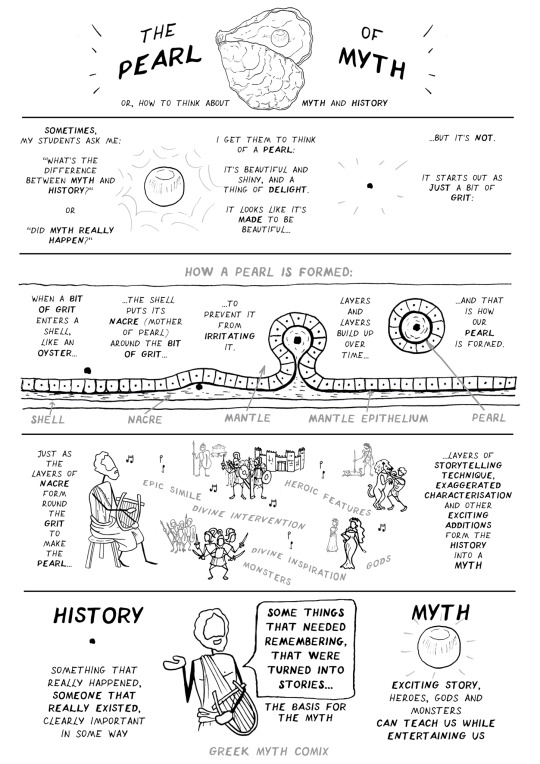
(Here’s a video of The Pearl of Myth with me talking it through in a calming voice: https://youtu.be/YEqFIibMEyo?sub_confirmation=1
youtube
And after all that, I hand a student at the front a secret sentence written on a piece of paper, and ask them to whisper it to the person next to them, and for that person to whisper it to the next, and so on. You’ve all played that game.
And of course the sentence is always rather different at the end than it was at the start, especially if it had Proper nouns in it (which tend to come out mangled). And someone’s often purposely changed it, ‘to be funny’.
And we talk about how this is a very loose metaphor for how stories and memory can change over time, and even historical record if it’s not copied correctly (I used to sidebar them about how and why Boudicca used to be known as ‘Boadicea’ but they just know the former now, because Horrible Histories exists and is awesome)
And after all that, I remind them that what we’re about to read has been translated from Ancient Greek, which was not exactly the language it was first written down in, and now we’re reading it in English.
And that’s how my teenaged students know NOT TO TAKE THE ILIAD AS FACT.
(And then we read the Iliad)
#man this week has been hard for classics teachers#Iliad#greek mythology#tagamemnon#greek myth#odyssey#homer#greek myth retellings#comix#greek myth comix#classics teacher#teaching#myth#history#ancient greek history#horrible histories#the idiots#teaching resources#teacher rant#Youtube
882 notes
·
View notes
Text

Any ideas?
#historical memes#history#history memes#meme#memes#historical#ancient history#Ancient Greece#Greek history#Ancient Greek history#macedon#Macedonia#Alexander#Alexander the great#alexander of macedon#Hephaestion#Hephaestion and Alexander#there I told you#I fucking love them
229 notes
·
View notes
Text
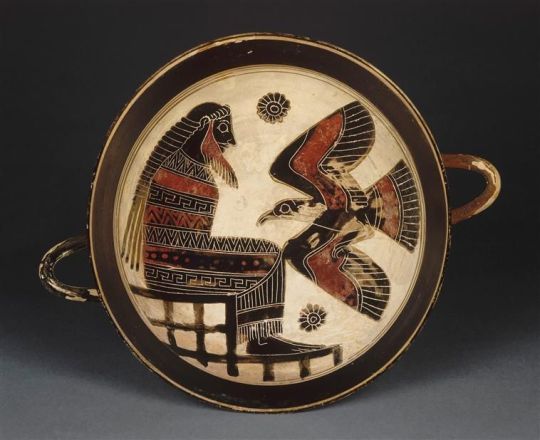
Lakonian kylix featuring Prometheos and his friend, the Eagle.
The hair - facial and head - is so quintessentially Spartan, it’s not funny. And he has his braids in a braid, right? That’s what’s going on back there? Like a super-braid.
Saw this called a Spartan king somewhere along the way. Think that might be a bit of a push, but I do like the idea that some perioikic craftsman was like - ‘Y’know, if I could depict anyone having their liver pecked out on the daily, you know who I’d choose…’
Anyway - This is 7th Century Lakonianware (from before the great cultural shift).
#ancient sparta#ancient greece#lakedaimon#7th Century BCE#spartan hairstyles#sparta#ancient history#greek history#spartan history#ancient greek history#greek mythology#prometheus
292 notes
·
View notes
Text

Marble bust of the great Athenian general, orator, and statesman Pericles (ca. 495-429 BCE), shown here wearing a Corinthian helmet. Pericles is credited by many historians, notably Thucydides, with guiding 5th century BCE Athens to its peak of greatness; among his achievements were the ambitious building program on the Parthenon and the conversion of the Delian League, originally formed to combat the Persians, into a tribute-paying Athenian empire. His reputation was not, however, unblemished. His political opponents accused him of aiming at tyranny, while his enforcement of the Megarian Decree--which barred Sparta's ally Megara from all Athenian harbors and was effectively an act of economic warfare--may have been the proximate cause of the Peloponnesian War. His death from plague plunged Athens into crisis and led to a succession of populist leaders such as Cleon and Hyperbolus, whose far more aggressive foreign policy ultimately proved disastrous for Athens. Though the city would survive and even make a second attempt at empire-building, it never regained the unchallenged supremacy it had enjoyed in the Periclean period.
Roman copy of uncertain date after a lost Greek original. Now in the Museo Chiaramonti, Vatican City.
#classics#tagamemnon#Ancient Greece#Classical Greece#ancient history#Greek history#Ancient Greek history#Pericles#Perikles#art#art history#ancient art#Greek art#Ancient Greek art#Classical Greek art#sculpture#portrait sculpture#portrait bust#marble#stonework#carving#Museo Chiaramonti#Vatican Museums
190 notes
·
View notes
Text
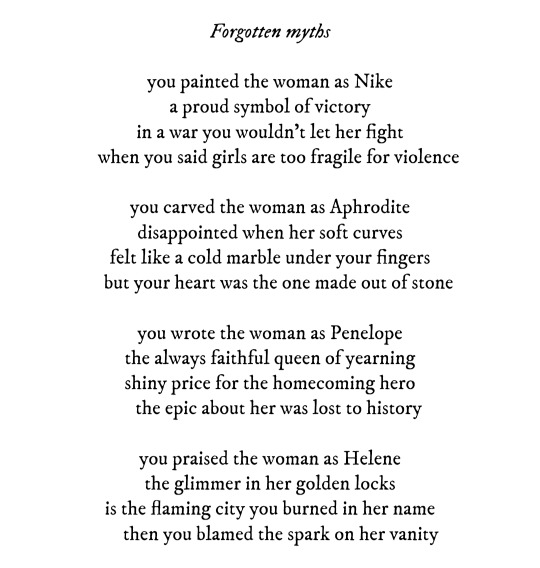

Forgotten myths, March 2023
#poetry#poem#spilled poetry#spilled ink#mythology#greek mythology#my poetry#greek gods#spilled words#original poets on tumblr#original poetry#original poem#dark academia#ancient greek history#feminist poetry
319 notes
·
View notes
Text
Alexander: I will crush every kingdom in India and kill the kings, and most importantly kiss Porus.
Hephaestion: Hmm..?
Alexander: KILL PORUS-
#macedonian sillys#greek history#ancient greek history#indian history#ancient indian history#ancient greece#ancient india#alexander of macedon#alexander the great#porus#hephaestion
69 notes
·
View notes
Text

#I’m fine I’m fine I’m normal I’m fine#dark academia#alexander the great#hephaestion#alexander x hephaestion#ancient greece#academia#history#girls when#dark academia aesthetic#macedonian#ancient greek history#happy ides of march I only care about alexander#but also girls when brutus#girls when et tu brute#brutus#rome#ides of march
316 notes
·
View notes
Text
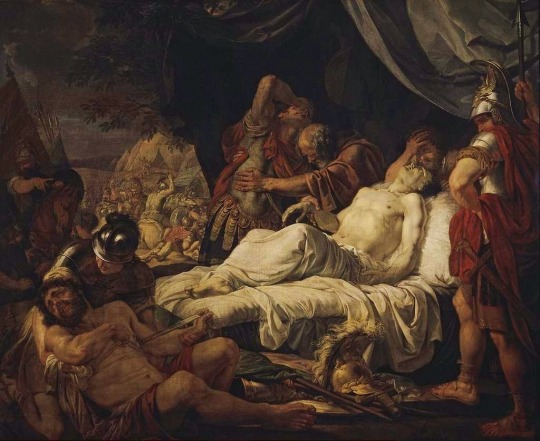
The Death Of Pelopidas, c. 1806
By Andrey Ivanovich Ivanov
#art#painting#fine art#classical art#russian art#oil painting#19th century art#art history#historical painting#russian painter#greek history#russian artist#ancient greece#ancient greek history#european art
53 notes
·
View notes
Text
"At the touch of love everyone becomes a poet."
— Plato








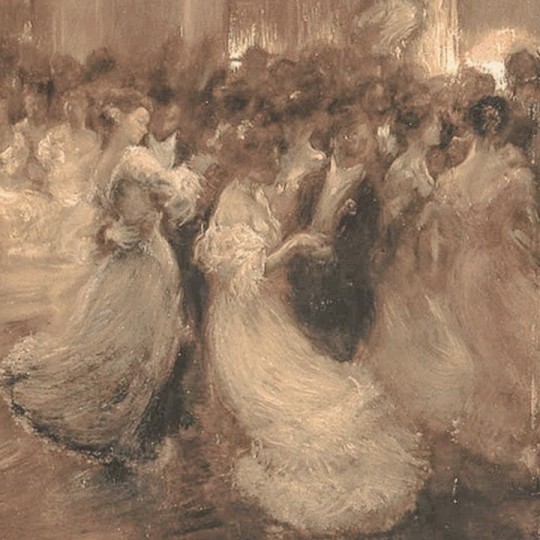
#jungkook icons#greek tumblr#greek posts#greek aesthetic#ancient greek history#renaissance#renaissance art#renaissance aesthetic#jungkook#bts jungkook#jeon jungkook#jungkook moodboard#jungkook layouts#jungkook headcanons#jungkook headers#jungkook aesthetic#jungkook soft moodboard#jungkook soft aesthetic#jungkook soft icons#jungkook soft packs#jungkook pink icons#jungkook pink moodboard#jungkook pics#jungkook packs#jungkook masterlist#jungkook messy headers#jungkook messy moodboard#taehyung icons#jungkook messy icons#jungkook black aesthetic
456 notes
·
View notes
Text
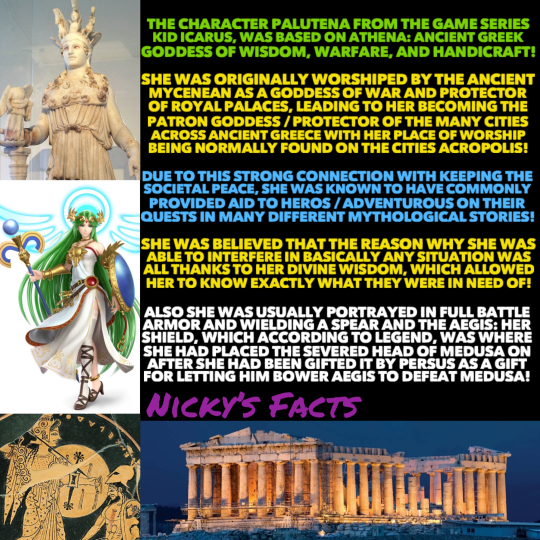
All hail Lady Palutena, goddess of light!
🛡🏛🏺
#history#palutena#athena#kid icarus#ancient greece#video game history#aegis#nintendo#goddess#mythology#athens#ancient greek history#video games#divine feminine#kid icarus uprising#ancient history#goddesscore#myth#womens history#gamer girl#greek mythology#super smash bros#greek goddess#nintendo history#video game#ancient#nickys facts
38 notes
·
View notes
Photo
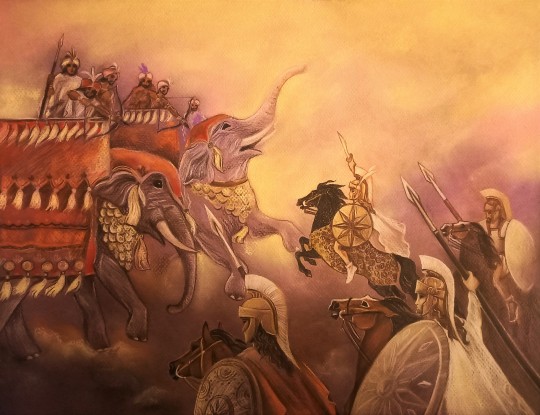
Battle of the Hydaspes. Alexander the Great (2021)
#alexander the great#alexander of macedon#hephaestion#hephaistion#bucephalus#battleofhydaspes#marysmirages#horse#elephant#ancient greek history#ancient india#art#painting#drawing#illustration
433 notes
·
View notes
Text
Children of Persephone headcanons (because there aren't enough)
Children of Persephone often develop bipolar disorder as a result of their mother's two different “sides”.
Children of Persephone get along well with most underworld kids, but especially Hades' kids, as they're step-siblings.
In the winter, children of Persephone tend to have a temper and a short-fuse.
All children of Persephone are born with the desire to eat pomegranate seeds at least once in their lives.
Children of Demeter are often bossy towards children of Persephone, who deliberately try to annoy them.
Children of Persephone are often very free spirits and hate being told what to do.
Persephone doesn't have very many demigod children, as she is completely loyal to her husband (though she's not above having a child with a mortal out of spite).
Children of Persephone tend to be very independent and stubborn.
Children of Persephone may have a rivalry with children of Aphrodite, though it can be friendly.
Children of Persephone are stronger in places of nature — this extends to garden centres.
Children of Persephone tend to take on a lot more than they can bare.
Children of Persephone tend to be wary of snakes and children of Zeus, because of the rape of their mother.
Children of Persephone take great offence if you use their name in vain or as the basis of mockery.
Children of Persephone become more ruthless and bloodthirsty in the winter.
If a child of Persephone sees a deer in a forest, it will come to greet them, as deer are their mother's sacred animal.
Children of Persephone would most likely skin you if you spoke badly of their mother.
All children of Persephone are beautiful, as beauty is subjective.
If looking to boast, most children of Persephone will refer to themselves as a child of The Destroyer.
When angered, children of Persephone can have a ruthless, thirst-for-blood that could rival a child of Ares.
Some children of Persephone are more feared than children of Hades.
Children of Persephone are often friendly with nature spirits.
Just as children of Poseidon can talk to sea animals, children of Persephone can “talk” to plants, in that they understand what plants want or need.
All children of Persephone have the ability to grow flowers or plants, which many accidentally do when they're nervous.
Powerful children of Persephone possess the ability to turn people into animals or plants.
Though this is rare, some children of Persephone possess a very mild form of charmspeak and are able to accentuate their beauty or the beauty of others.
Another rare power is the ability to take away the pain of death and bless them with safe passage to a good afterlife, but only for those who deserve it — if the person is deemed unworthy by Persephone, they will be given a fair judgement.
Children of Persephone can summon and communicate with the dead, but to a lesser extent than the children of Hades — in some cases, Hades may bless the child, which amplifies this ability.
As Persephone is the mistress and the goddess of the Furies, her children can summon the Furies, who will obey them without question.
Children of Persephone have the rare power to bless people/lands with fertility.
#pjo#percy jackson#headcanons#ancient greek history#ancient greek gods#ancient greek mythology#greek gods#greek mythology#persephone#children of persephone#powers#she's so cool#girl is scary#goddess
145 notes
·
View notes
Note
Because unfortunately the internet doesn't have any lists of famous couples in Greek history aside of course... Greek mythology.. i know of Pericles- Aspasia/ Theodora- Justinian but i am very sure there are many more.
Can you make a list of famous couples in Greek history starting from ancient times until 20th century?
I am not perfectly sure how to approach this though. Are we talking about couples both members of which contributed to history? Or just a famous couple we know existed? Also, is this only about history or does it include famous couples culture-wise? Do they both have to necessarily be Greeks by descent? There are many questions I have but I will give it a try.
Periclés & Aspasia (5th century BC)
Aspasia was the sister-in-law of Alcibiades who brought her too with him in Athens from her hometown Miletus in Asia Minor. Aspasia worked as a high-class courtesan, a hetaera. She is perceived in two different ways by Ancient Greeks: either as a vulgar promiscuous woman or as a philosopher and an intellectual. Maybe the truth was somewhere in between. She had a son with Pericles, the most prominent politician of Classical Athens. It is suggested that Perciles heard her council and took her opinions regarding politics into account.
Socrátes & Xanthippe (5th-4th century BC)
Not exactly a role model of a pairing but a famous one nonetheless. For one, the most famous Greek philosopher, Socrates, must have been a LOT older and his marriage to Xanthippe might have not even be his only one. On the other hand, many sources seem to agree that Xanthippe was a notoriously temperamental person and she would mistreat Socrates, who viewed this as an opportunity to practice the values of patience and forbearance.
Crates & Hipparcheía (4th century BC)
Crates of Thebes was a cynical philosopher, whom Hipparcheia of Maroneia met and fell madly in love with. She insisted that (the unattractive) Crates would be the only one she would be having, leading her wealthy parents to despair. The parents asked Crates to talk her out of it himself and Crates complied! He removed his clothes and showed himself to Hipparcheia, telling her: "That's all you'll be getting in a life with me". He did not phase Hipparcheia one bit and eventually the parents ceded and allowed Crates to marry her. They are notorious for a little too much PDA (they were having sex publicly) which scandalised Ancient Greeks a great deal. Their relationship was one of mutual love and respect and living on equal terms together. Hipparcheia not only embraced but started practicing philosophy and totally immersed herself in the respective lifestyle of cynicism as well.
[???] Cleopatra & Antonius (1st century BC)
I don't know if they count since Antonius AKA Mark Antony was not Greek, however Cleopatra was a member of the Macedonian Ptolemaic dynasty of Egypt and their story essentially sealed the Greek future. Mark Antony was a Roman general who opposed to Julius Caesar´s assassins and allied with the latter´s relative Octavian. Later, however, their relationship was strained leading to a form of civil war in the Roman Empire. The reason was that Mark Antony had a long affair with the Queen of Egypt Cleopatra, even had three kids with her, and now favoured promoting Caesarion (Cleopatra´s son from her past affair with Caesar) to the Roman throne instead of Octavian. Mark Antony was defeated by Octavian in the Battle of Actium in Greek territory and then again in the Battle of Alexandria. Knowing there was no hope for them at this point, Cleopatra and Antonius committed suicide together and this generally is viewed as the "official" end of any form of Hellenistic hegemony in the now completely Roman empire.
[???] Justinian & Theodora (5th - 6th century AD)
The question marks are because Theodora was of Greek descent but Justinian was not. Justinian was one of the most successful emperors of the East Roman / Byzantine Empire, making it reach its widest borders, including "reconquests" of the fast dissolving Western Roman Empire. He also achieved or rather imposed the peace in the internal affairs of the empire, sometimes with the use of a lot of violence. It is believed that he was very influenced by his wife Empress Theodora, who was hardened by her very humble origins (she was likely a prostitute). Theodora was extremely strong-minded and contributed a lot to the strong image built around her husband. Furthermore, she contributed to the making of laws for the improvement of the position of women in the society. Most sources agree Justinian was crazy for her, while it is uncertain whether Theodora was loyal to him.
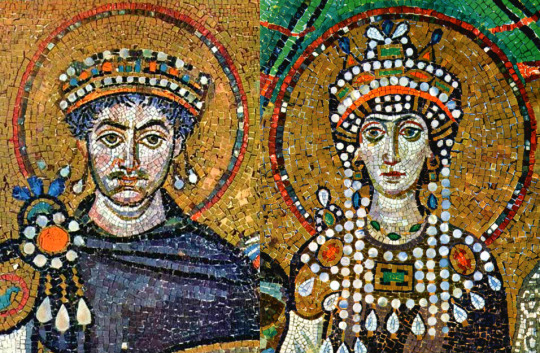
Surviving mosaics of Justinian and Theodora in a Byzantine Church in Italy.
Kassianí and Theóphilos (9th century AD)
These two have become a romance in legends more than they might have actually been in their real life. Still, their affair or lack thereof, technically, has a significant enough impact on Greek and Greek Orthodox culture so they should be mentioned. The Byzantine Emperor Theophilos invited all the prettiest maidens of the empire to his court in order to pick a wife. Amongst them, Kassiani was the one who stood out both in looks and intellect. The emperor stood before her and offered her a golden apple, token of his affection and proposal. It is totally unclear what was happening in Theophilos' brain at the moment but of all things he could say to impress her, he chose to tell her something very sexist. Kassiani ended him on the spot with her response and did not take the apple. The emperor, humiliated in front of all his court, gave the apple to Theodora (another one!), another fine lady standing next to Kassiani. For all we know, this could be the end of it. But Kassiani's choice to never marry and isolate herself in a monastery instead has created legends and speculations that it was due to her heartbreak. In any case, Kassiani proceeded to become the most (or only) significant female psalm composer and poetess in the history of the empire and her psalms and hymns are used in the Service of the Orthodox Church during the Holy Week of Easter. Meanwhile, Theophilos fell ill early in his life and died young. It is said / speculated that when he felt death was near, Theophilos visited Kassiani in her monastery to see her one last time. Kassiani saw his carriage approach and hid herself in a closet to avoid the temptation. Theophilos entered her cell and saw nothing but the psalm she was composing at the time on a table. He read it and added the last line himself. He understood she was hiding from him, respected this and left. Kassiani got out, read the hymn and kept Theophilos' addition. Since then, the last verse of this hymn is attributed to Theophilos. For more about Kassiani and what exactly were the notorious exchanges they had that separated them as well as how the content of this hymn is essentially what led to these speculations, read this older post I had made.
Mantó Mavroyénus & Demétrios Ypsilantis (19th century)
A romance that flourished amidst the years of the Greek Independence War. Demetrios led many of the battles against the Ottoman army, however he is a little overshadowed by the more tragic story of his brother, Alexander Ypsilantis, who was the overall leader of the Friendly Society (the secret organisation which plotted and spread the fervor for the Greek Revolution). Meanwhile, Manto was the daughter of a wealthy aristocratic Greek expat in Italy, who was also a member of the Friendly Society. When the war broke out, Manto first tried to raise awareness about the Greek cause in France. Soon, she departed for Mykonos island, the place of her descent, with a large part of her fortune. She bought ships and created her own fleet, sending them and her men to many battles in the islands. She later participated in several battles in mainland Greece as well. There she met Demetrios and they got engaged. She became renowned in all of Europe at the time for her beauty and activity. The couple was in love and they were adored by the Greeks, who really liked that union of brave noble Greek role models. A prominent and very corrupted politician, Ioannis Koletis, did not share the sentiment. Fearing that the couple was gaining too much power and influence over the public, that could eventually turn political, he started a relentless defamation of Manto to her fiancé. He spread his lies so that Manto's reputation was ruined. Ashamed, Demetrios broke up with her. Manto returned to her home island heartbroken and penniless as she had given all her fortune for causes of the war. After the official indepedence of the Greek state, the enlightened governor Ioannis Kapodistrias restored her reputation and gave her the honorary title of Lieutenant general. Around the same time, Demetrios passed away young as he had always frail health.

Penelópe Delta & Ion Dragumis (19th - 20th century)
A famous love story rather than a couple. Ion Dragumis was a prominent young politician and the biggest adversary of the famous Greek politician Eleftherios Venizelos. He was very sophisticated, seductive and a smooth womanizer. He drew the attention of the slightly older author Penelope Delta, who at the time was already a mother of three. Delta fell so madly in love that she had the guts to reveal the truth to her husband and ask for a divorce. Her husband refused, trying to protect both his and her reputation. However, Delta's passion for Dragumis was so fierce that neither the husband nor her father could fight it. They eventually gave her an ultimatum that she had to choose either her children or leave the children to the father and go away with Dragumis. Delta chose to stay with her children but her desire was such that she attempted suicide multiple times. Meanwhile, Dragumis went on with his life and started an open affair with the famous actress Marika Kotopuli, without any intent to marry, which was very scandalous for the time. When Delta heard of this affair she started dressing in black, as if in grief, and kept doing it until the end of her days. At some point, there was an attempt at an assasination of Venizelos in Paris. Fanatic supporters of his in Athens, believing mistakenly that his big adversary Dragumis was behind it, trapped him and shot him in the middle of a street. Delta dedicated some of her later activity to sort out and copy a lot of Dragumis' drafts full of thoughts and ideas, that his brother had entrusted with her. Apart from this, Delta kept writing novels that made her the most prominent female writer of her time in Greece. She had reached her sixties when, in 1941, the Nazi Germans invaded Athens. On that day, she finally committed suicide by drinking poison. For more details, read this older post about Ion Dragumis' love life.

Kostas Karyotakis & Maria Polyduri (20th century)
Two young people, brought apart by their very different personalities and brought together by the fact that they both happened to be poets. The young couple fell madly in love. Karyotakis was a very timid and bashful man, full of insecurities and suicidal thoughts. On the other hand, Polyduri was a raging emancipated extrovert, which caused judgement at the time. Although they were very much in love and dreamed to elope together, Karyotakis was afraid of the bold lifestyle of Polyduri and the judgement it caused. When the girl even took the initiative to propose to him, the young man was so taken aback and panicked that he lied to her that it was no use, because he suffered from syphilis and therefore they should not consumate the marriage. Polyduri did not believe him but she was very heartbroken by his rejection. She departed for Paris where she continued her bohemian lifestyle, maybe taking it too far, until they found her unconscious in a narrow alley. She was diagnosed with tuberculosis and was taken to the sanatorium in Athens. As she was fighting for her life, she learnt that in her absence her past lover had finally committed suicide. His suicide note is very famous, as he describes how he initially tried to kill himself by drowning in the sea but failed because he was a skilled swimmer. He resorted to a pistol. The tragic news had very adverse effects on Polyduri's fragile health. A friend of hers, maybe taking pity on her, handed her injections of morphine, with which she ended her life as well. She has left a suicidal poem, which confirms that grief was the reason she took her life.
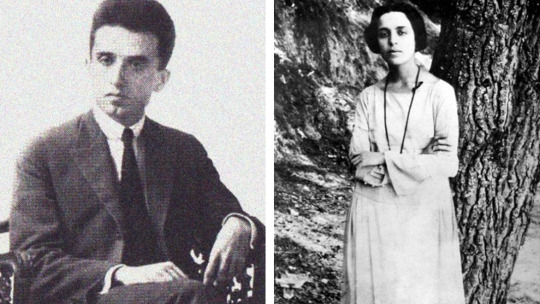
Maria Callas & Aristotle Onassis (20th century)
A very dark couple but the lovers were two of the most internationally well known Greeks of the century. Maria Callas was a Greek American who distinguished herself for being the most famous soprano in the history of Opera. She was born in the USA to Greek parents but soon they were divorced and little Maria followed her mother and sister in Greece where she received her operatic training. Later, she spent most of her time in Italy and France for her career where she enjoyed huge success and glory. She became a symbol of music and finesse. Despite all this, Callas was a tortured soul because she constantly felt unloved and exploited, both by her family and her Italian husband at the time. She suffered from great insecurities and was often deeply melancholic. Meanwhile, Aristotle Onassis was a Greek from Smyrna (now Izmir, Turkey) whose family experienced the atrocities of the Great Fire of Smyrna (in Greek known as Asia Minor Catastrophe). He emigrated to the Americas and started building a colossal business and fortune. He became one of the globally most well known tycoons by accumulating the largest privately owned shipping fleet. His power was immense. He was insanely ambitious and wanted to taste and own all the finest things in the world. He was impressed by Callas and courted her, although he was still married to his first wife. Callas succumbed and broke up with her husband. It was certainly a status affair, however Callas saw something in him, maybe his intelligence, his ambition, that made her fall in love with him deeply. She was pushing for marriage, as she ultimately dreamt to have kids and a conventional love life but Onassis was giving her the hot and cold treatment. One day, Maria Callas famously turned on the TV in her apartment, only to see in the news that Onassis had married the widow of American president John Kennedy. I can only imagine the impact learning such a thing from the news had for the sensitive psyche of Callas. Onassis went mad with the sense of status it gave him to marry the wife of the American president. However, he never loved Jackie and they barely even interacted in their marriage. Onassis would often pay visits to Callas which did no good to her but she found it very hard to resist him even though he made her sadder and sadder still. Despite all his cleverness and strategies, Onassis became miserable with tragedies that struck his family, so much that there is a talk of the "Onassis curse", generally insinuating that he was paying for his wrongdoings. Onassis could not suffer the untimely death of his son and his health deteriorated fast. Callas visited him in his deathbed and there were sources claiming he expressed his regret to her. Callas too had a very fragile health for many years. His death is believed to have contributed to her own premature death from a heart attack two years later.
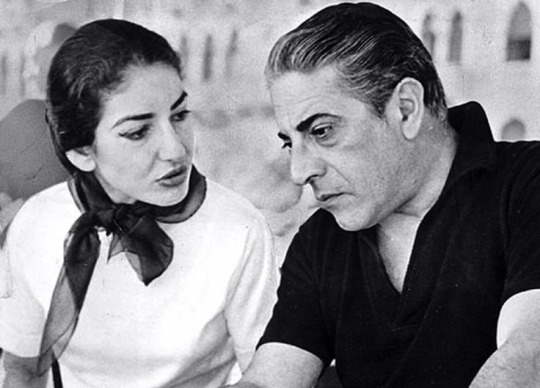
King Constantine II of Greece & Queen Anne-Marie of Greece (20th - 21st century)
Because the majority of Greeks have no positive views about the constitutional monarchy, this may seem like an odd choice, however the truth is that before the graceless fall and exile of the king, the young royal couple was adored by the Greek public because it was viewed as the quintessential romantic image of a royal fairytale. He was young and super handsome, she was super beautiful and graceful, he was the Greek king, she was the Danish princess. Their marriage may have been one of the most grande events that took place in Athens in the 20th century. The media were delirious, one magazine declaring how "we" had the most beautiful royal couple in the world and, you know, as bold a statement as it may seem, it was perhaps not far from the truth. The image of the king was forever ruined after his catastrophic choices to tolerate the Greek dictatorship and then organize a childish coup against it. The fallen royal family lived in exile for the following decades - and we can accept that they sincerely resented this - until the ex-king was allowed back in Greece in the 00s. Regardless of anything else, the two of them were a rare example of marital success and mutual devotion in the royal circles. Despite all the drama and resentment against Constantine and the institution of monarchy, the Greeks retain respect for former Queen Anne Marie, who remained graceful all this time, viewed as a perfect role model of a wife and respectable royal. Constantine passed away a year ago.

They were literally Disney.
Aliki Vouyouklaki & Dimitris Papamichaél (20th century)
I thought of ending this with a celebrity couple, certainly the most famous Greek celebrity couple. Much like it happens in such cases, the image was so very bright but the truth was darker. Despite all the toxicity, it is generally believed Vouyouklaki and Papamichael were each other's love of their life. Vouyouklaki and Papamichael were the most promising and charismatic actors of their generation. They were in the same theatrical school and developed a love-hate relationship with constant bickering. When they rose to stardom, they simply tranferred this energy to the movies they starred in together, which led to great success and immense adoration from the Greek public. Aliki Vouyouklaki retains the title of the "national star". When the two got married, their fans were losing their minds. The marital life was not peaceful as their youthful bickering had now transformed into the much darker career competition. Papamichael was a very conservative man and he was poisoned of feelings of injustice and envy when Vouyouklaki attracted more attention and acknowledgement than he did, because he thought of himself a better actor than she was. Now, that was generally true, Papamichael was a great actor with a big range for comedy and drama. Vouyouklaki has posthumously been accused of bad acting, however this is not entirely fair. She was indeed bad in drama but she was exceptional in comedy. A problem that could negatively affect her performances was that she refused to spoil her looks for a role, no matter how essential it was for the plot. Anyway, the marriage was often violent and neither of the two ceded to the other, as Vouyouklaki was extremely sharp and refused to sacrifice anything from her image, her career and her decency. Eventually, they broke up in a bad way as well. Both went on with their lives but Papamichael found it harder to cope without her. In later years, they reached a sort of mutual understanding and formed a platonic friendship of sorts. Aliki Vouyouklaki was prematurely diagnosed with pancreatic cancer. In her deathbed, Papamichael would visit her and lament, and implore her to rise and go away together. After her death, which shocked and deeply grievened all of Greece, Papamichael would regularly visit her grave for the rest of his life.
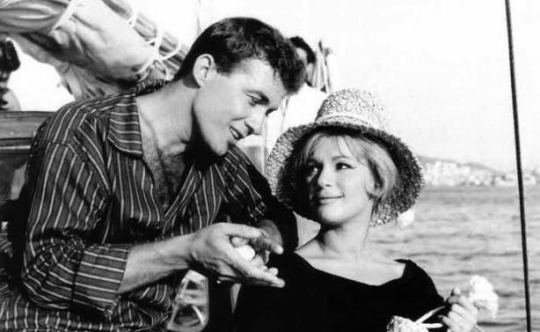
And one from when they were far less glamourous but finally healthily loving / respectful to each other, with their son, because I want to end this on a good note.

Is this an early Valentine post? lol idk it takes some serious left turns
#greece#europe#history#greek history#ancient greek history#byzantine greek history#modern greek history#culture#famous people#greeks#greek people#greek culture#anon#ask#long post#long text#tw long#cw violence#cw abuse
15 notes
·
View notes
Text
I’m done being normal about Plato. I am now going to treat him how insane k-pop stans treat BTS. yeah.. he’s getting babygirlified. bark bark BARKBAKRBARK !!
#studyblr#classics#plato#yeah the greek guy#classic academia#classical studies#ancient greek#ancient greek history#classics student#classics studyblr#archaeology
37 notes
·
View notes
Text

Silver tetradrachm of the Ionian polis of Chios, depicting the Sphinx sitting before an amphora. Minted between 478 and 431 BCE, during Chios' time as part of the Delian League/Athenian empire. Now in the Staatliche Münzsammlung, Munich, Germany. Photo credit: ArchaiOptix/Wikimedia Commons.
#classics#tagamemnon#Ancient Greece#ancient history#Greek history#Ancient Greek history#Classical Greece#art#art history#ancient art#Greek art#Ancient Greek art#Classical Greek art#Chios#Chian art#classical mythology#Greek mythology#Sphinx#coins#ancient coins#Greek coins#Ancient Greek coins#tetradrachm#numismatics#ancient numismatics#Staatliche Munzsammlung
307 notes
·
View notes